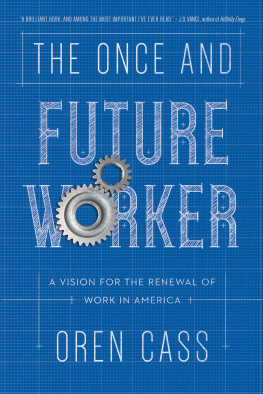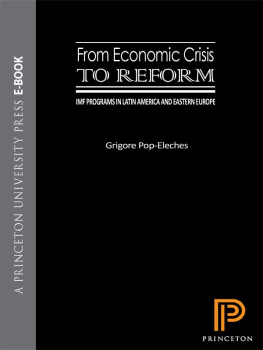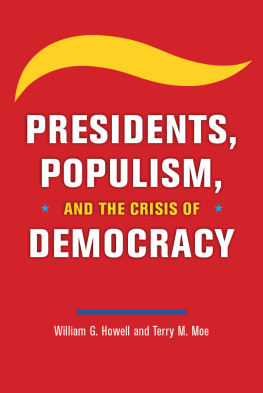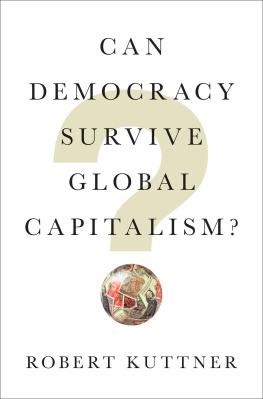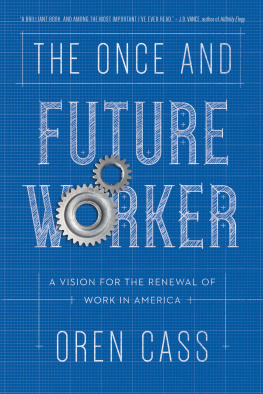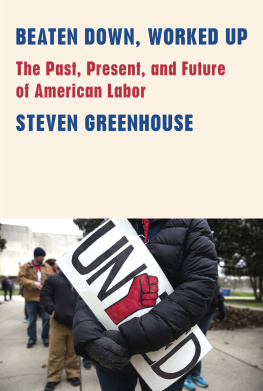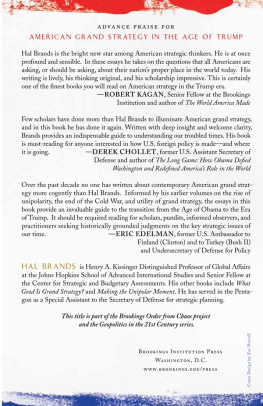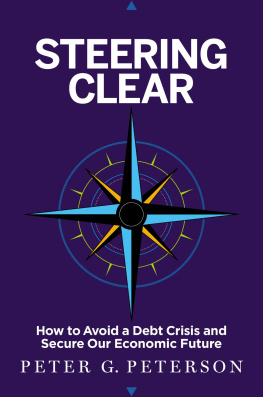
THE ONCE AND FUTURE WORKER
THE ONCE AND

A VISION FOR THE RENEWAL OF WORK IN AMERICA
OREN CASS

The following chapters include extended excerpts from the authors prior essays, used with permission from the original publishers:
: | The Inequality Cycle, National Review, October 2015 |
: | Is Technology Destroying the Labor Market?, City Journal, Spring 2018 |
: | Reform the Clean Air Act, National Review, March 2015
The New Central Planners, National Affairs, Spring 2016
Modern Management for the Administrative State, in Unleashing Opportunity: Policy Reforms for an Accountable Administrative State, ed. Yuval Levin and Emily MacLean (Washington, D.C.: National Affairs, 2017) |
: | Teaching to the Rest, National Review, July 2017 |
: | Fight the Dragon, National Review, June 2014 |
: | More Perfect Unions, special issue, City Journal, 2017 |
: | The Height of the Net, National Review, October 2013
Send Spending Power Back to the States, City Journal, Winter 2016
Our Medicaid Mess, National Review, August 2016 |
: | The End of Work, National Review, June 2016
The UBIs Parent Trap, City Journal, March 2017
Policy-Based Evidence Making, National Affairs, Summer 2017 |
2018 by Oren Cass
All rights reserved. No part of this publication may be reproduced, stored in a retrieval system, or transmitted, in any form or by any means, electronic, mechanical, photocopying, recording, or otherwise, without the prior written permission of Encounter Books, 900 Broadway, Suite 601, New York, New York, 10003.
First American edition published in 2018 by Encounter Books, an activity of Encounter for Culture and Education, Inc., a nonprofit, tax exempt corporation.
Encounter Books website address: www.encounterbooks.com
Manufactured in the United States and printed on acid-free paper. The paper used in this publication meets the minimum requirements of ANSI/NISO Z39.481992 (R 1997) (Permanence of Paper).
FIRST AMERICAN EDITION
LIBRARY OF CONGRESS CATALOGING-IN-PUBLICATION DATA
Names: Cass, Oren, 1983 author.
Title: The once and future worker : a vision for the renewal of work in America / by Oren Cass.
Description: New York : Encounter Books, [2018] | Includes bibliographical references and index.
Identifiers: LCCN 2018014245 (print) | LCCN 2018021379 (ebook) | ISBN 9781641770156 (ebook) | ISBN 9781641770149 (hardcover : alk. paper)
Subjects: LCSH: Political planningUnited States. | United StatesEconomic policy. | United StatesSocial policy. | WagesUnited States. | Foreign workersUnited States. | Labor marketUnited States.
Classification: LCC JK468.P64 (ebook) | LCC JK468.P64 C377 2018 (print) | DDC 331.10973dc23
LC record available at https://lccn.loc.gov/2018014245
Interior page design and composition: BooksByBruce.com
In memory of Irv
who always liked a good argument
CONTENTS
INTRODUCTION
THE WORKING HYPOTHESIS
A merican public policy has lost its way. Since the middle of the last century, it has chased national economic growth, expecting that the benefits would be widely shared. Yet while gross domestic product (GDP) tripled from 1975 to 2015, the median workers wages have barely budged. Half of Americans born in 1980 were earning less at age thirty than their parents had made at that age. Millions of people have dropped out of the labor force entirely.
The primary response to the failure of rising GDP to lift all boats has been a dramatic increase in economic redistribution. Since 1975, total spending on the safety net has quadrupled. Yet the average poverty rate in the 2010s was higher than it was in the 1990s, which in turn had a higher rate than the 1970s. Analysts debate whether upward mobility has merely stalled or sharply fallen, but no one claims that it has improved. Meanwhile, families and even entire communities have collapsed; addiction has surged; life expectancy is now falling.
Rather than reversing course, policy makers wait expectantly for rescue to arrive from an education system that can transform those left behind into those getting ahead. If this were readily available, it would indeed help ease the growing crisisand, for that matter, solve any number of societys problemsbut no such miracle appears imminent. Despite the nation doubling per-pupil spending and attempting countless education reforms, test scores look no better than they did forty years ago. Most young Americans still do not achieve even a community college degree.
With good reason, then, confidence in national institutions has eroded. Most Americans have felt the country is on the wrong track since even before the late-2000s financial crisis struck. Most Americans expect that the next generation will be worse off than themselves. Outsider candidates across the political spectrum, most notably, of course, Bernie Sanders and Donald Trump, have gained huge followings that would have seemed inconceivable only a few years earlier, simply by observing that we are in fact lostno matter that their own road maps are flawed in important ways. Even residents of the most prosperous and cloistered enclaves are discovering that, in a democracy, a miserable majority is everyones problem.
This book explains where we went off-track and how we might turn around. Its argument, at its most basic, is that work matters. More specifically, it offers what I will call the Working Hypothesis: that a labor market in which workers can support strong families and communities is the central determinant of long-term prosperity and should be the central focus of public policy.
Alongside stable political institutions that protect basic freedoms, family and community provide the social structures necessary to a thriving society and a growing economy. Those institutions in turn rely on a foundation of productive work through which people find purpose and satisfaction in providing for themselves and helping others. The durable growth that produces long-term prosperity is the emergent property of a virtuous cycle in which people who are able to support their families and communities improve their own productivity and raise a subsequent generation able to accomplish even more. Conversely, without access to work that can support them, families struggle to remain intact or to form in the first place, and communities cannot help but dissolve; without stable families and communities, economic opportunity vanishes.
Economic growth and rising material living standards are laudable goals, but they by no means guarantee the health of a labor market that will meet societys long-term needs. If we pursue growth in ways that erode the labor markets health, and then redistribute income from the winners to the losers, we can produce impressive-looking economic statisticsfor a while. But we will not generate the genuine and sustainable prosperity that we want. Growth that consumes its own prerequisites leads inevitably to stagnation.
Next page
